World Tourism Trends Summit (WTTS 2025) Cozumel
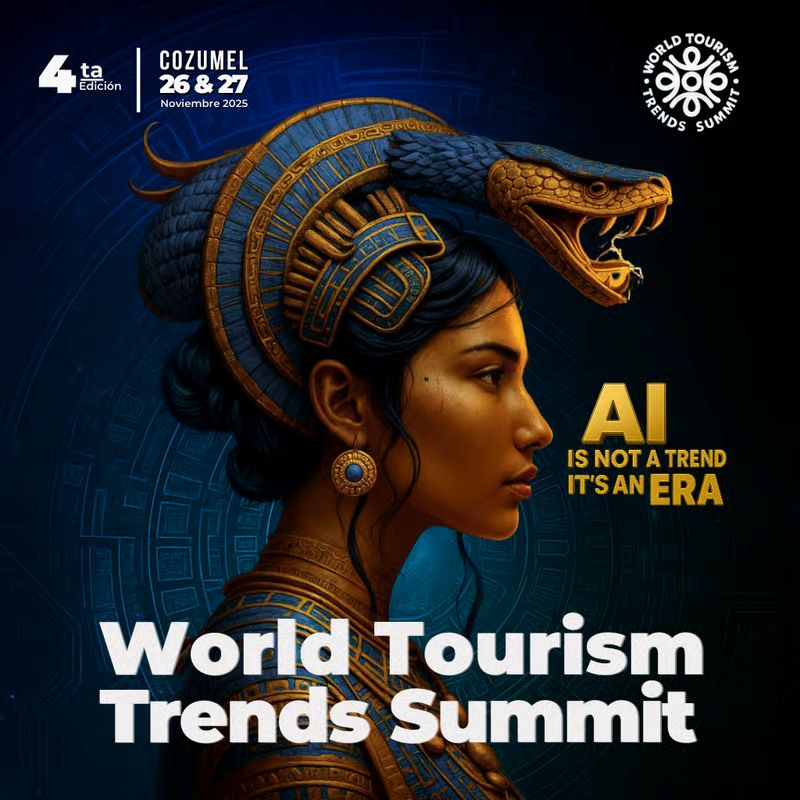
Future Horizons in Paradise: The World Tourism Trends Summit Comes to Cozumel
By the time your ferry glides across the Caribbean and the turquoise water fans out beneath the hull, Cozumel has already begun its quiet spell. The sea is impossibly clear, the air rich with salt and sunlight, and palm leaves tick rhythmically in the breeze. Yet, for two days in late November 2025, this tranquil island will become something else entirely — a crossroads where innovation meets the horizon.
That’s when the World Tourism Trends Summit (WTTS 2025) arrives, transforming Cozumel’s Centro de Convenciones into a living laboratory of ideas, technology, and imagination. From November 26 to 27, professionals, thinkers, and dreamers will gather under one roof — and one Caribbean sky — to explore the forces reshaping global tourism.
It’s a bold concept, pairing cutting-edge technology with the timeless allure of a tropical island. But that’s precisely the point. “Tourism is about connection — with people, with places, and now with data,” says Margarita Carbajal, one of the summit’s founding voices and a veteran of Mexico’s tourism sector. “We’re learning that to preserve what we love about travel, we must also understand how technology can sustain it.”
A New Kind of Travel Gathering
Unlike traditional conferences tucked into windowless hotel halls, WTTS invites participants to think expansively. Its slogan, “El que domina los datos, domina el mercado” — He who masters data, masters the market — captures the ambition. This is not about chasing trends; it’s about shaping them.
Each session dives into the intersections of artificial intelligence, smart destinations, digital marketing, augmented reality, and sustainable travel design. On one stage, researchers dissect how machine learning can anticipate visitor behavior; on another, start-ups pitch technologies for carbon-neutral resorts and personalized guest experiences. The conversations stretch from robotics in hospitality to the sovereignty of tourism data — who owns it, who benefits from it, and how it can empower local communities rather than extract from them.
Glenda Michel, a policy expert and one of the summit’s keynote speakers, sees WTTS as a necessary evolution. “Tourism used to be reactive — we responded to travelers’ needs after the fact,” she says. “Now, with the right digital tools, we can design experiences before a visitor even books their ticket. That’s not manipulation — it’s anticipation. It’s hospitality elevated through insight.”
Her words resonate in Cozumel’s humid air, where the island’s own story mirrors the larger narrative of transformation. Long celebrated for its coral reefs and Mayan heritage, Cozumel is no stranger to reinvention. It has weathered hurricanes, cruise booms, and now, the delicate pivot toward a sustainable, tech-savvy future.
Cozumel: The Living Laboratory
It’s hard to imagine a more fitting stage. Step outside the convention center, and you’re greeted by the hum of scooters along the Avenida Rafael E. Melgar, the scent of lime and grilled fish wafting from nearby taquerías, and the rhythmic lilt of Caribbean Spanish floating through the air.
But look closer, and you see innovation in motion. Digital kiosks guide tourists through reef preservation tours; QR codes tell the stories of local artisans; and eco-lodges across the island are experimenting with AI-driven energy management systems to reduce their footprint.
“The WTTS isn’t happening in Cozumel by coincidence,” says Carbajal. “It’s a living example of how tourism and technology can coexist. The island reminds us that innovation should serve the destination, not replace it.”
In this light, attending WTTS becomes more than a professional trip — it’s an immersion. Delegates will wander between sessions on data sovereignty and AR storytelling, then drift into the coral shallows of Parque Nacional Arrecifes de Cozumel, where the reef glows in improbable blues and oranges. In the evenings, they’ll sip chilled agua de jamaica on open terraces, the conversations around them dissolving from analytics to adventure, from algorithms to awe.
Inside the Summit
The program is designed as a journey. It begins with vision sessions — sweeping discussions about the megatrends redefining travel in the next decade — followed by deep-dive panels where practitioners trade tools and tactics. The air buzzes with cross-pollination: technologists discovering the cultural sensitivities of destination marketing, and hoteliers learning the lexicon of digital ecosystems.
There’s also a commercial zone, a space more reminiscent of an artisan market than a trade fair. Booths brim with prototypes, apps, and prototypes of immersive reality experiences. One company demos a virtual-reality snorkel simulation that lets users explore Cozumel’s reefs without disturbing marine life; another shows how generative AI can tailor itineraries based on emotional preferences rather than demographics.
Between sessions, attendees step out for coffee — not the anonymous kind poured from silver urns, but local brews from Chiapas and Veracruz, served alongside pan dulce dusted with cinnamon sugar. There’s a sensory generosity to the entire experience, as if the organizers want to remind everyone that while technology is vital, tourism is, at its core, about human warmth.
“Innovation isn’t about replacing people,” says Michel during a panel titled ‘Humanity in the Algorithm.’ “It’s about freeing us to do what humans do best — connect, empathize, tell stories. The best tech disappears into the background and lets hospitality shine through.”
Why Attend
For potential attendees, WTTS 2025 offers not just a seat in the room, but a place in a movement. The summit’s appeal lies in its blend of intellect and intimacy — an event that’s as much about conversation as it is about content. You might find yourself discussing predictive analytics with a hotelier from Panama in the morning, then sharing ceviche and laughter with a Mexican tourism official by sunset.
The organizers expect more than a thousand participants from across Latin America, the Caribbean, and beyond. English and Spanish mingle in the air, and business cards are exchanged as readily as beach recommendations. For newcomers to the field, it’s a crash course in the next era of travel. For veterans, it’s a chance to rethink what they know.
WTTS also promises visibility: innovators can showcase their products, destination marketers can forge partnerships, and entrepreneurs can meet investors attuned to tourism’s digital frontier. Yet even amid the professional fervor, the island setting keeps the energy human. The sun, the sea, the rhythm — they all conspire to remind everyone why they entered this industry in the first place.
The Spirit of Cozumel
When the day’s last panel closes and the crowd spills into the golden light, Cozumel performs its quiet magic again. The streets glow softly, and music drifts from beach bars where locals and visitors dance barefoot on the sand. It’s easy to forget that just hours earlier, you were talking about neural networks and destination sovereignty.
Here, the digital and the natural don’t compete — they converse. The stars over the Caribbean sky seem to echo the summit’s own theme: that progress and preservation, innovation and intimacy, can coexist.
“Travel is the most human of industries,” Carbajal reflects. “Every time someone journeys somewhere new, they carry stories back with them. Technology should make those stories richer, not replace them.”
In Cozumel, that idea takes form. The island’s reefs whisper of resilience; its people embody hospitality as heritage. To attend WTTS is to witness how an ancient impulse — to explore — finds renewal through modern tools. It’s a place where the next era of travel isn’t theorized in boardrooms but imagined in real time, with sand between your toes.
Closing Reflection: The Future That Feels Like Home
As the summit draws to a close, and the final applause fades into the hum of evening cicadas, you might find yourself standing at the edge of the pier, watching the last ferry lights shimmer against the sea. You’ll think about the words you’ve heard — data, sovereignty, sustainability, experience — and realize they all point to something profoundly simple: belonging.
In the end, the World Tourism Trends Summit isn’t just about trends. It’s about the enduring human wish to understand the world and our place within it. It’s about bridging the algorithms of the future with the emotions that make travel unforgettable.
Cozumel, in its effortless beauty, offers a living metaphor for that balance. The ocean still breathes. The reefs still glow. And somewhere between the hum of conversation and the hush of waves, the future of tourism begins — not in theory, but in the warmth of the people who dare to imagine it.
窗体顶端
窗体底端
Horizontes del Futuro en el Paraíso: El World Tourism Trends Summit Llega a Cozumel
Cuando el ferry se desliza sobre el Caribe y el agua turquesa se abre bajo el casco, Cozumel ya empieza a ejercer su hechizo silencioso. El mar es de una claridad imposible, el aire huele a sal y sol, y las palmas se mecen con un ritmo hipnótico. Pero durante dos días, a finales de noviembre de 2025, esta isla tranquila se transformará en algo distinto: un cruce de caminos donde la innovación se encuentra con el horizonte.
Es entonces cuando el World Tourism Trends Summit (WTTS 2025) llega para convertir el Centro de Convenciones de Cozumel en un laboratorio vivo de ideas, tecnología e imaginación. Del 26 al 27 de noviembre, profesionales, visionarios y soñadores se reunirán bajo un mismo techo —y un mismo cielo caribeño— para explorar las fuerzas que están transformando el turismo mundial.
La propuesta es audaz: combinar la tecnología más avanzada con el encanto eterno de una isla tropical. Pero ese es precisamente el objetivo. “El turismo es conexión —con las personas, con los lugares y ahora también con los datos,” dice Margarita Carbajal, una de las voces fundadoras del congreso y figura clave del sector turístico en México. “Estamos aprendiendo que, para preservar lo que amamos de viajar, debemos entender cómo la tecnología puede ayudarnos a sostenerlo.”
Un Nuevo Tipo de Encuentro Turístico
A diferencia de los congresos tradicionales en salones sin ventanas, el WTTS invita a pensar en grande. Su lema, “El que domina los datos, domina el mercado”, resume su ambición. No se trata de seguir tendencias, sino de crearlas.
Cada sesión se adentra en los cruces entre la inteligencia artificial, los destinos inteligentes, el marketing digital, la realidad aumentada y el diseño sostenible del viaje. En un escenario, investigadores analizan cómo el aprendizaje automático puede anticipar el comportamiento del viajero; en otro, startups presentan tecnologías para resorts neutros en carbono y experiencias personalizadas para los huéspedes.
Las conversaciones van desde la robótica en la hospitalidad hasta la soberanía de los datos turísticos: quién los posee, quién se beneficia y cómo pueden empoderar a las comunidades locales en lugar de explotarlas.
Glenda Michel, experta en políticas públicas y una de las ponentes principales, ve el WTTS como una evolución inevitable. “El turismo solía ser reactivo: respondíamos a las necesidades del viajero después de que surgían,” explica. “Ahora, con las herramientas digitales adecuadas, podemos diseñar experiencias antes de que el visitante reserve su boleto. No es manipulación; es anticipación. Es hospitalidad elevada por la inteligencia.”
Sus palabras resuenan en el aire húmedo de Cozumel, donde la historia de la isla refleja la misma narrativa de transformación. Famosa por sus arrecifes de coral y su herencia maya, Cozumel conoce bien el arte de reinventarse. Ha sobrevivido huracanes, auges cruceristas y, ahora, el delicado giro hacia un futuro sostenible y tecnológicamente conectado.
Cozumel: Laboratorio Vivo
No podría haber un escenario más adecuado. Al salir del centro de convenciones, te recibe el zumbido de las motocicletas sobre la Avenida Rafael E. Melgar, el aroma a lima y pescado asado de las taquerías cercanas, y el vaivén musical del español caribeño flotando en el aire.
Pero al mirar con atención, ves la innovación en movimiento. Kioscos digitales orientan a los turistas hacia recorridos de preservación marina; los códigos QR narran la historia de los artesanos locales; y los eco-hoteles de la isla experimentan con sistemas de inteligencia artificial para gestionar energía y reducir su huella ecológica.
“El WTTS no se realiza en Cozumel por casualidad,” señala Carbajal. “Es un ejemplo vivo de cómo el turismo y la tecnología pueden convivir. La isla nos recuerda que la innovación debe servir al destino, no reemplazarlo.”
Asistir al WTTS es, en ese sentido, mucho más que un viaje profesional: es una inmersión. Los delegados pasarán de una charla sobre soberanía de datos a una demostración de narrativas turísticas con realidad aumentada, y luego se sumergirán en las aguas cristalinas del Parque Nacional Arrecifes de Cozumel, donde el arrecife brilla en tonos imposibles de azul y naranja. Al caer la tarde, beberán agua de jamaica fría en terrazas abiertas, mientras las conversaciones se disuelven del análisis al asombro, del algoritmo a la emoción.
Dentro del Congreso
El programa está diseñado como un viaje. Comienza con sesiones de visión —debates sobre las megatendencias que redefinirán el turismo en la próxima década— y continúa con paneles de profundización donde expertos intercambian tácticas y herramientas.
El ambiente vibra con ideas cruzadas: tecnólogos descubriendo las sutilezas culturales del marketing de destinos, hoteleros aprendiendo el lenguaje de los ecosistemas digitales.
También hay una zona comercial, más parecida a un mercado artesanal que a una feria corporativa. Los estands rebosan de prototipos, aplicaciones y experiencias inmersivas. Una empresa presenta una simulación de snorkel en realidad virtual que permite explorar los arrecifes sin alterar la vida marina; otra muestra cómo la inteligencia artificial generativa puede diseñar itinerarios según emociones y no solo demografía.
Durante las pausas para el café, no hay urnas metálicas impersonales: se sirven granos de Chiapas y Veracruz, acompañados de pan dulce espolvoreado con canela. Todo en el evento parece recordarte que, aunque la tecnología es esencial, el turismo sigue siendo —ante todo— una historia de calidez humana.
“La innovación no se trata de reemplazar a las personas,” afirma Michel en un panel titulado ‘La Humanidad en el Algoritmo’. “Se trata de liberarnos para hacer lo que los humanos hacemos mejor: conectar, empatizar, contar historias. La mejor tecnología es la que desaparece y deja brillar la hospitalidad.”
Por Qué Asistir
Para los asistentes potenciales, el WTTS 2025 ofrece algo más que un lugar en la sala: una posición dentro de un movimiento. Su atractivo radica en la mezcla entre intelecto e intimidad, entre aprendizaje y descubrimiento.
Por la mañana podrías conversar sobre análisis predictivo con un hotelero de Panamá, y al atardecer compartir un ceviche con un funcionario de turismo mexicano.
Los organizadores esperan más de mil participantes de toda América Latina, el Caribe y otros rincones del mundo. El inglés y el español se mezclan en el aire, y las tarjetas de presentación se intercambian con la misma naturalidad que las recomendaciones de playa. Para los nuevos en el sector, será un curso intensivo sobre el futuro del turismo. Para los veteranos, una oportunidad de repensar lo que creían saber.
El WTTS también promete visibilidad: los innovadores pueden exhibir sus productos, los destinos pueden forjar alianzas y los emprendedores encontrar inversionistas sintonizados con la nueva frontera digital. Y aun entre la efervescencia profesional, el entorno isleño mantiene la energía humana y relajada. El sol, el mar y el ritmo recuerdan a todos por qué eligieron este oficio en primer lugar.
El Espíritu de Cozumel
Cuando termina el último panel y el público sale al atardecer dorado, Cozumel vuelve a desplegar su magia. Las calles se iluminan suavemente, y la música fluye desde los bares de playa donde locales y visitantes bailan descalzos sobre la arena. Es fácil olvidar que horas antes estabas hablando de redes neuronales y soberanía turística.
Aquí, lo digital y lo natural no compiten: conversan. Las estrellas sobre el cielo caribeño parecen repetir el mensaje del congreso: el progreso y la preservación pueden coexistir.
“Viajar es el acto más humano que existe,” reflexiona Carbajal. “Cada vez que alguien conoce un nuevo lugar, lleva historias de regreso consigo. La tecnología debe hacer esas historias más ricas, no sustituirlas.”
En Cozumel, esa idea cobra vida. Los arrecifes susurran resiliencia; su gente encarna la hospitalidad como herencia. Asistir al WTTS es presenciar cómo un impulso ancestral —explorar— se renueva con herramientas modernas. Es imaginar el futuro del turismo con los pies aún sobre la arena.
Reflexión Final: El Futuro que se Siente como Hogar
Cuando el congreso llega a su fin y los aplausos se disuelven entre el canto de las cigarras, tal vez te encuentres al borde del muelle, mirando las luces del último ferry reflejadas en el mar. Pensarás en las palabras escuchadas —datos, soberanía, sostenibilidad, experiencia— y comprenderás que todas apuntan a algo profundamente simple: pertenencia.
Al final, el World Tourism Trends Summit no trata solo de tendencias. Trata del deseo humano de comprender el mundo y nuestro lugar en él. De tender puentes entre los algoritmos del futuro y las emociones que hacen que viajar siga siendo inolvidable.
Cozumel, con su belleza sin esfuerzo, ofrece una metáfora viva de ese equilibrio. El océano sigue respirando. Los arrecifes siguen brillando. Y, entre el murmullo de las conversaciones y el susurro de las olas, el futuro del turismo comienza —no en la teoría, sino en la calidez de quienes se atreven a imaginarlo.
______________________________
Una ex yanqui de Connecticut quien llama hogar a Cozumel desde hace más de 15 años. Laura escapó al Caribe hace años, desplazándose de una isla a otra dando clases de BUCEO. Se dedicó a perder el tiempo en Jamaica y finalmente se detuvo en Cozumel para pasar unas vacaciones de 2 semanas que aún no terminan. Convenciendo a sus padres que pagaran una elegante universidad privada, obtuvo su título en Periodismo y Laura crea semanalmente Cozumel 4You, medios sociales y artículos promocionales sobre la Isla y también es moderadora en el grupo Cozumel 4 You en Facebook que actualmente cuenta con 25,000 miembros. Fabián, s umuy tolerante marido, desde hace mucho tiempo se resignó a no tener vida privada, pues se ha visto implicado en los diversos proyectos y planes que urde Laura. Son orgullosos padres de diversos perros y gatos rescatados. Mientras contempla su paso a través de la vida en el Caribe mexicano,Laura continúa siendo la pesadilla en la existencia de su muy tradicional suegra mexicana.
- Cozumel Fishing Tournament - February 6, 2026
- Cozumel Carriage Horses - February 6, 2026
- Cozumel 4 You NEWS February 06, 2026 - February 6, 2026
An ex-Connecticut Yankee who has called Cozumel home for over 18 years, Laura ran away to the Caribbean years ago, bumped around the islands teaching SCUBA diving, lost some time in Jamaica, and finally stopped in Cozumel for a 2 week vacation that hasn’t ended yet. With a degree in Journalism from a fancy private college she convinced her parents to pay for, Laura writes, edits, and creates the weekly Cozumel 4 You news, social media, and promotional articles about the island, as well as moderates the Cozumel 4 You Facebook group, which currently has over 25,000 members. Her long suffering husband, Fabian, has long since resigned himself to having zero private life, as he’s been involved in her various schemes and plots since his arrival. Proud parents to a variety of rescue dogs and cats, Laura continues to be the bane of her traditional Mexican mother-in-law’s existence, as she muses her way through life in the Mexican Caribbean. ______________________________ Una ex yanqui de Connecticut quien llama hogar a Cozumel desde hace más de 15 años. Laura escapó al Caribe hace años, desplazándose de una isla a otra dando clases de BUCEO. Se dedicó a perder el tiempo en Jamaica y finalmente se detuvo en Cozumel para pasar unas vacaciones de 2 semanas que aún no terminan. Convenciendo a sus padres que pagaran una elegante universidad privada, obtuvo su título en Periodismo y Laura crea semanalmente Cozumel 4You, medios sociales y artículos promocionales sobre la Isla y también es moderadora en el grupo Cozumel 4 You en Facebook que actualmente cuenta con 25,000 miembros. Fabián, s umuy tolerante marido, desde hace mucho tiempo se resignó a no tener vida privada, pues se ha visto implicado en los diversos proyectos y planes que urde Laura. Son orgullosos padres de diversos perros y gatos rescatados. Mientras contempla su paso a través de la vida en el Caribe mexicano, Laura continúa siendo la pesadilla en la existencia de su muy tradicional suegra mexicana.
Cozumel Fishing Tournament
Reel Big News: Quintana Roo Casts a Wide Line at FITUR 2026...
ByLaura WilkinsonNovember 7, 2025Cozumel Carnival 2026: Schedule of Activities
Cozumel Carnival 2026: Schedule of Activities The island of Cozumel is preparing...
ByLaura WilkinsonNovember 7, 2025Cozumel December Night Sky
Join us at the #PlanetarioCozumel for an immersive fulldome experience with live...
ByLaura WilkinsonNovember 7, 2025Cozumel Reef Schedule
Cozumel’s Reefs Take Turns to Rest: Marine Park Implements Rotating Closures to...
ByLaura WilkinsonNovember 7, 2025

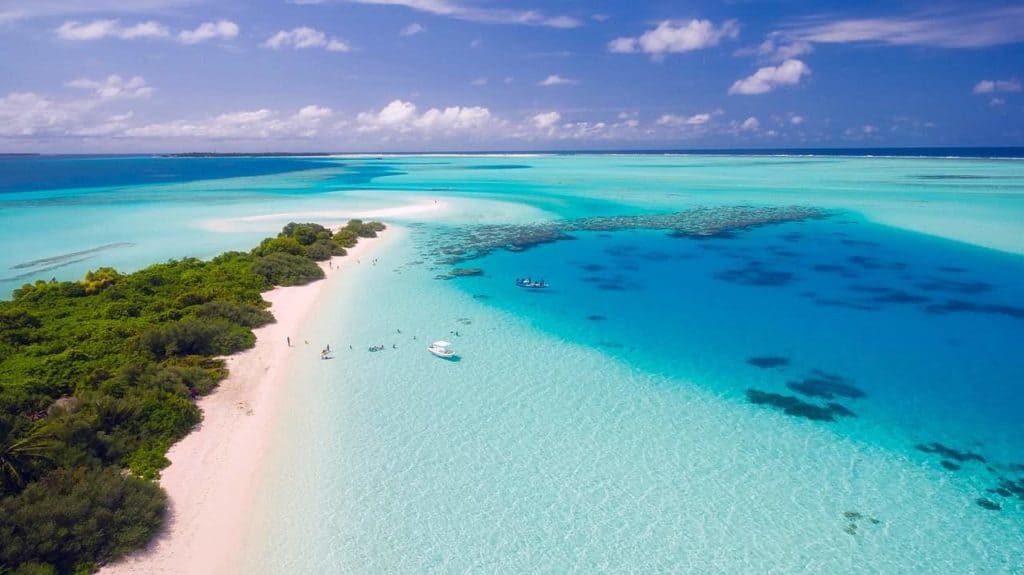
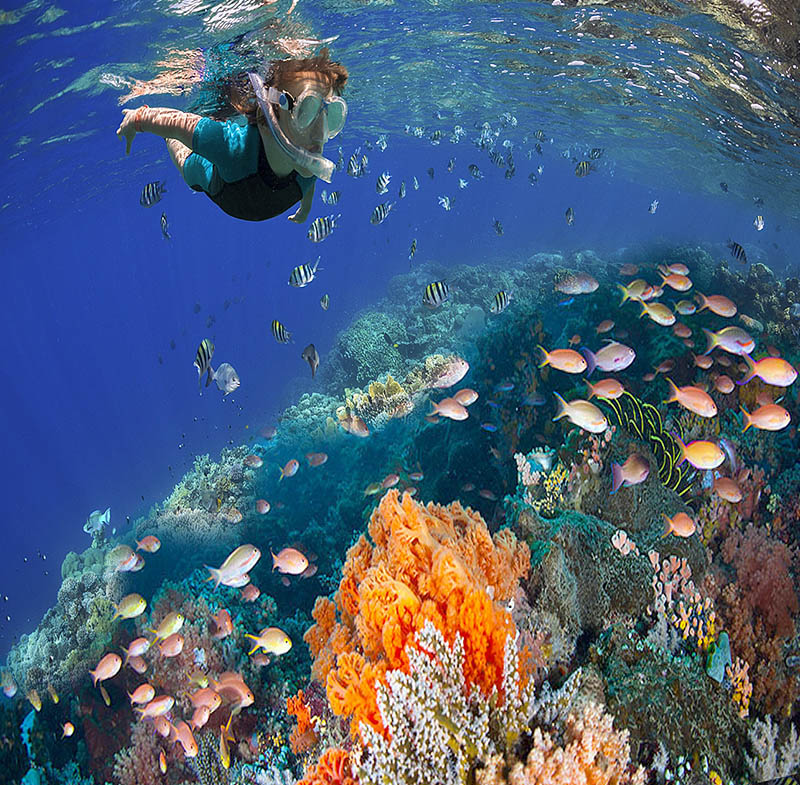
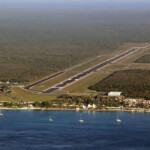
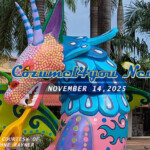
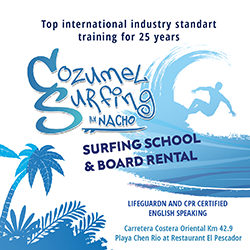
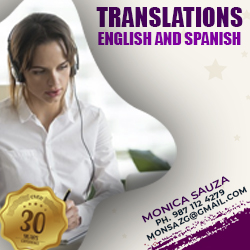



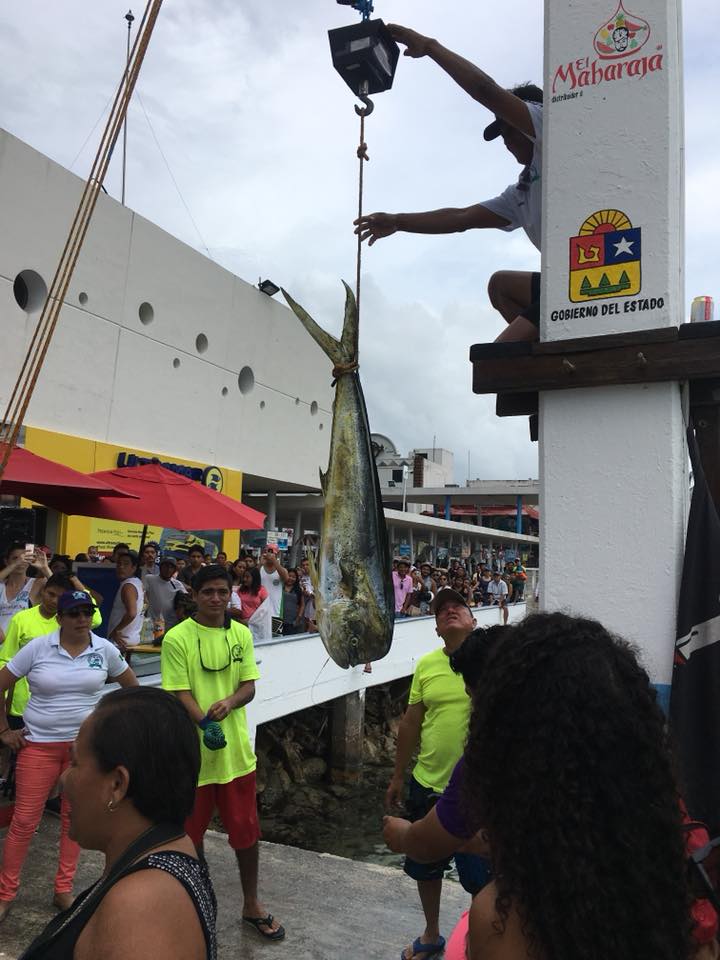


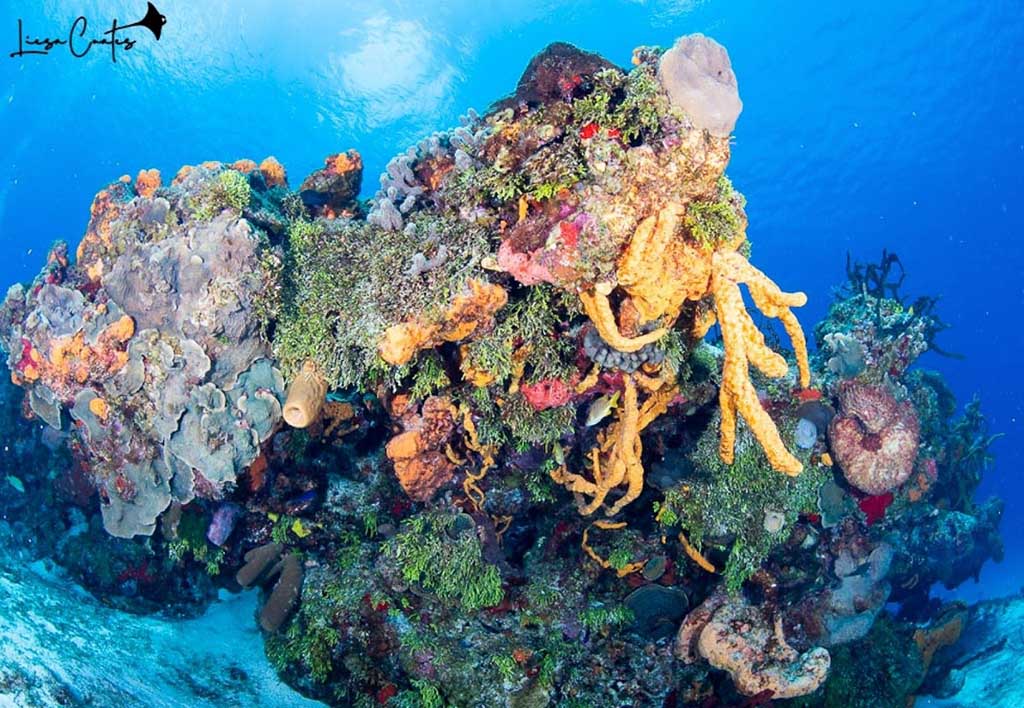








Leave a comment